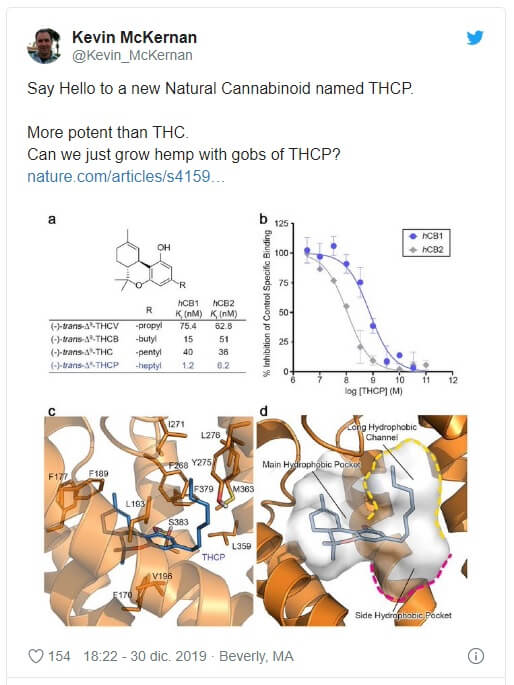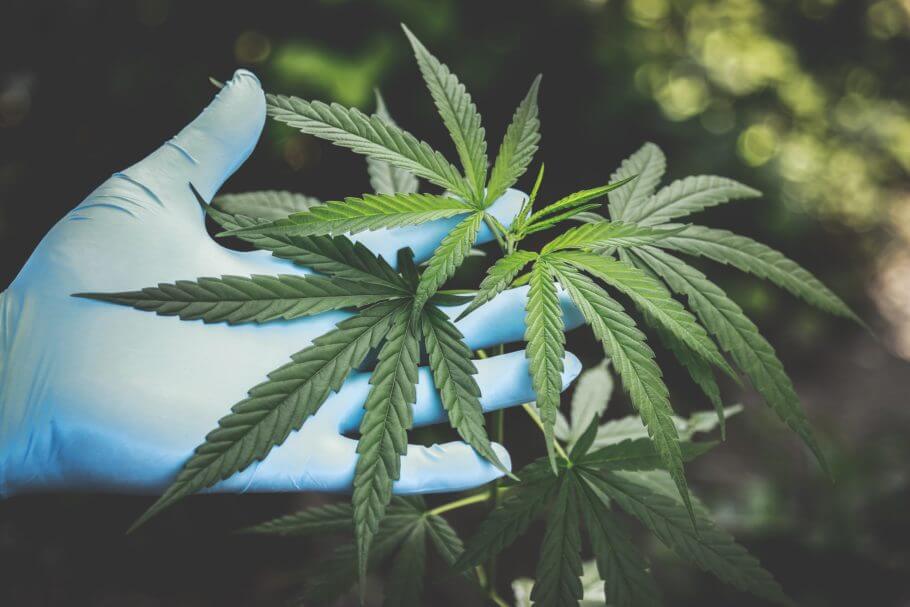THCP, a cannabinoid up to 30 times more potent than THC
List of contents
Δ9-Tetrahydrocannabiphorol: the new holy grail of cannabis?
Towards the end of 2019, a team of Italian scientists investigating the properties of cannabis came upon something totally unexpected: two new and important cannabinoids.
These cannabinoids turned out to be very similar to regular THC (Tetrahydrocannabinol) and CBD (Cannabidiol), but with a greater number of carbon atoms in their alkyl side chain, which means their properties and even their potency are modified.

THCP or Δ9-Tetrahydrocannabiphorol has shown itself to be a molecule with a huge affinity for the brain's CB1 receptor (up to 30 times more than THC), in other words, it binds to the cannabinoid receptor far more readily than THC.
In addition, it also seems to show higher cannabimimetic activity than THC, which suggests that it may be even more potent than it.
THCP shows up to 30 times more affinity with the CB1 cannabinoid receptor than THC
Laboratory tests carried out on rats have shown that THCP induces hypomobility, analgesia, catalepsy (the rats remain immobile and anaesthetised) and a slight drop in rectal temperature, similar to the effects when THC is administered.
Experiments have also shown that applying 5mg/kg of THCP produces the same effects as using twice as much THC, which, added to its great affinity with the CB1 receptor, shows its enormous potency.

These properties mean that THCP offers an enormous medicinal opportunity that is well worth studying, to investigate whether this huge potential also applies to its antioxidant, anti-inflammatory and anti-epileptic effects.
In other words, it could become a superb complement to CBD, further intensifying its beneficial properties and offering therapeutic synergies for medical cannabis users.
With respect to CBDP, it barely shows any affinity with our cannabinoid receptors, making it less interesting for pharmaceutical research.
THCP, discovered by chance in the Italian medicinal cannabis variety FM2
Both cannabinoids were discovered in the Italian cannabis variety "FM2", cultivated under military supervision to guarantee the highest quality product for its therapeutic users.

In fact, the discovery was made almost by chance during the laboratory analysis of FM2's cannabinoid levels, when the scientists were surprised by these marvellous new compounds.
This suggests that many other regular or feminised cannabis strains may in fact contain THCP in varying proportions, but that it hasn't been found before because it was not being specifically sought. This new discovery may help to explain the great differences in effect between varieties that possess similar THC and CBD levels.
In short, this is a very promising discovery that deserves to be investigated in depth to unleash its full potential. We will closely follow Dr. Kevin McKernan for more news, and we will continue to keep you fully informed.
Best wishes!
(The original study was published in the prestigious Nature magazine, you can read it by following the link)


































































